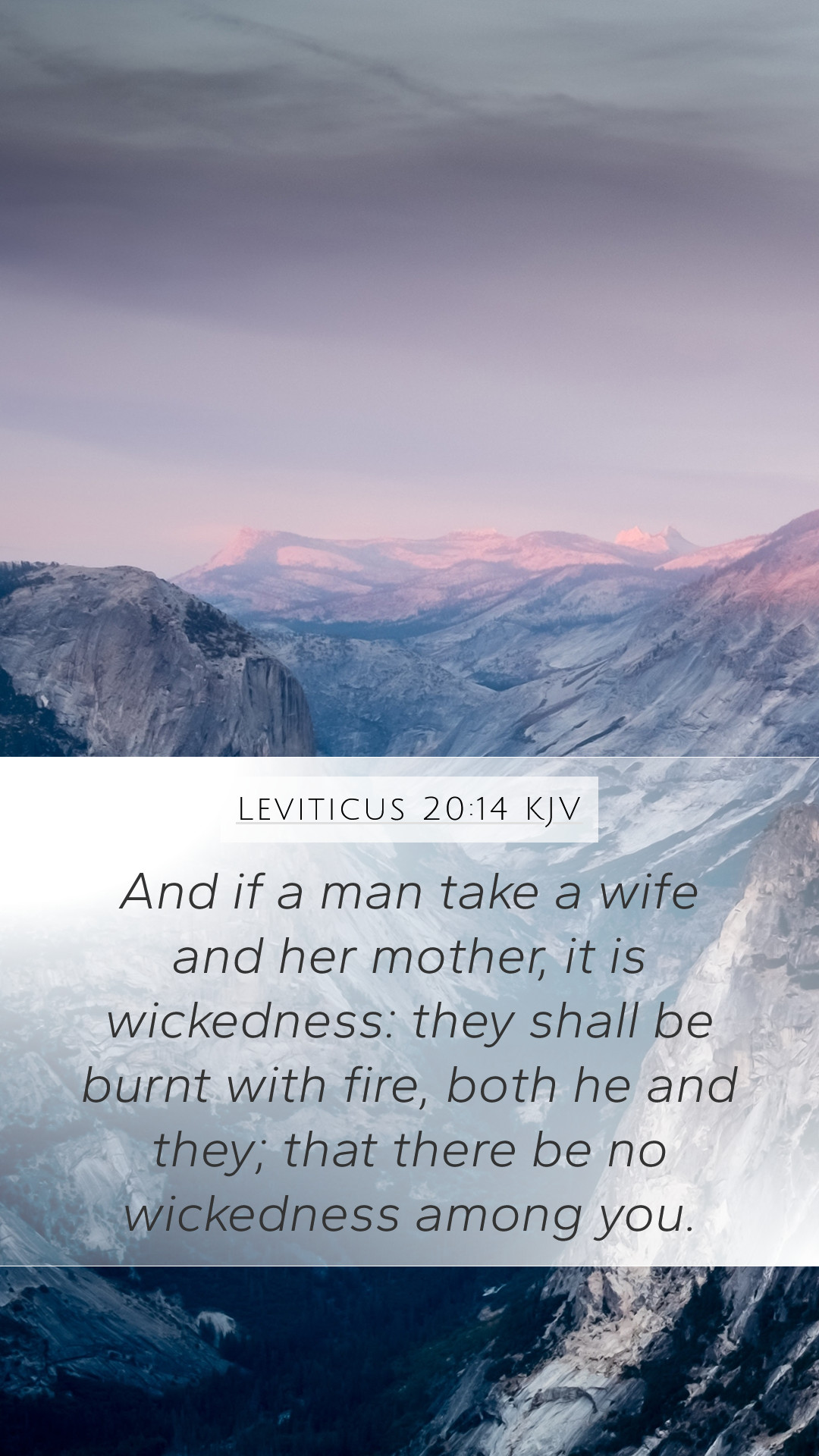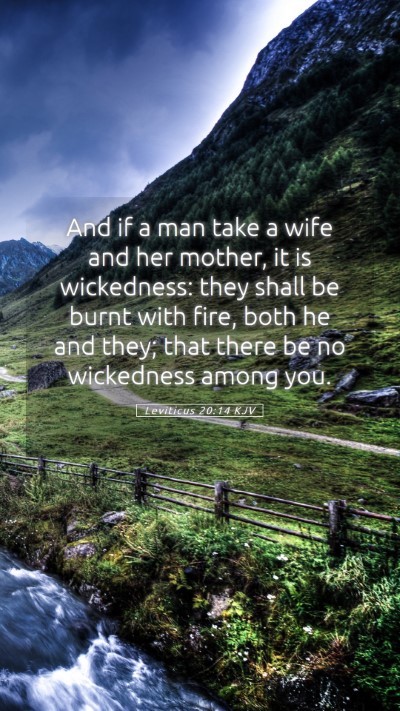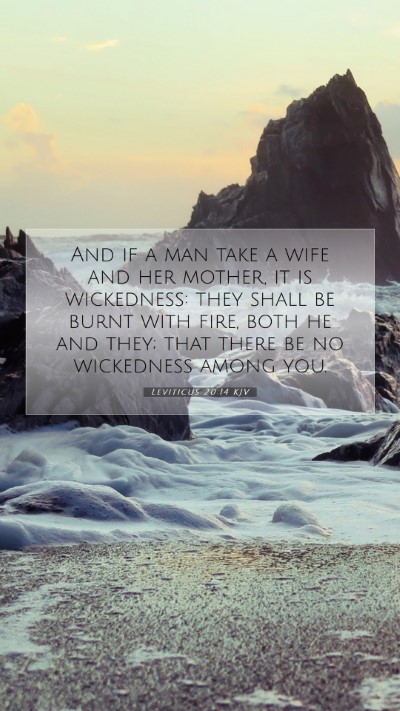Understanding Leviticus 20:14
Leviticus 20:14 states, "If a man takes a woman and her mother, it is wickedness; they shall be burned with fire, both he and they, that there be no wickedness among you." This verse outlines a severe condemnation against incestuous relations and highlights the sanctity of family structures in Israelite society.
Bible Verse Meaning
In understanding this verse, we can draw from several public domain commentaries, including those by Matthew Henry, Albert Barnes, and Adam Clarke. These commentaries provide extensive insights into the implications of such laws in the context of ancient Israel and their relevance to the broader themes of holiness and morality within Scripture.
Context and Significance
Leviticus is part of the Mosaic Law, which was given to the Israelites. The laws contained in this book were intended to set the Israelites apart as a holy nation. The verse serves as both a directive against immorality and a warning against actions that could corrupt the moral fabric of the community.
Insights from Commentaries
-
Matthew Henry emphasizes the severity of the punishment, illustrating that such relationships were seen not only as morally corrupt but as a violation of divine law. He suggests that the fire symbolizes divine judgment aimed at purging wickedness from among the people.
-
Albert Barnes focuses on the cultural implications, highlighting that these laws were meant to maintain family integrity and social order. He elaborates on the concept of "wickedness" as something that could lead to broader societal decay if not dealt with decisively.
-
Adam Clarke explains the term "wickedness," which denotes an act that not only offends God but also jeopardizes the well-being of the community. He points out that the law served as a deterrent against acts that could bring shame and dishonor to families and the nation.
Applying Leviticus 20:14 to Daily Life
Understanding this verse today involves recognizing the importance of maintaining moral standards within our communities and families. While the specific cultural practices may differ, the underlying principle of upholding righteousness and honoring familial relationships remains relevant.
Contemporary Relevance
-
This passage highlights the importance of understanding Scripture within its historical context and applying its moral teachings in our lives today.
-
It invites reflection on how personal actions may affect familial bonds and societal values.
Cross References
- Leviticus 18:17 - Prohibition of uncovering the nakedness of both mother and daughter.
- Deuteronomy 22:22 - Penalty for adultery and its community implications.
- 1 Corinthians 5:1-5 - New Testament reference to incest and church discipline.
Conclusion
In summary, Leviticus 20:14 provides a stark warning against sexual immorality and underscores the importance of maintaining holiness. The combination of commentaries from esteemed scholars offers depth to its interpretation, encouraging both historical insight and contemporary application of its teachings. As Bible study groups explore this verse through online Bible study tools and resources, they can gain valuable insights into the meaning of this and similar Bible verses.
For anyone seeking to delve deeper into Bible study lessons, guides, and plans, this verse offers fertile ground for discussions about moral conduct and the understanding of God’s expectations for His people throughout history.


